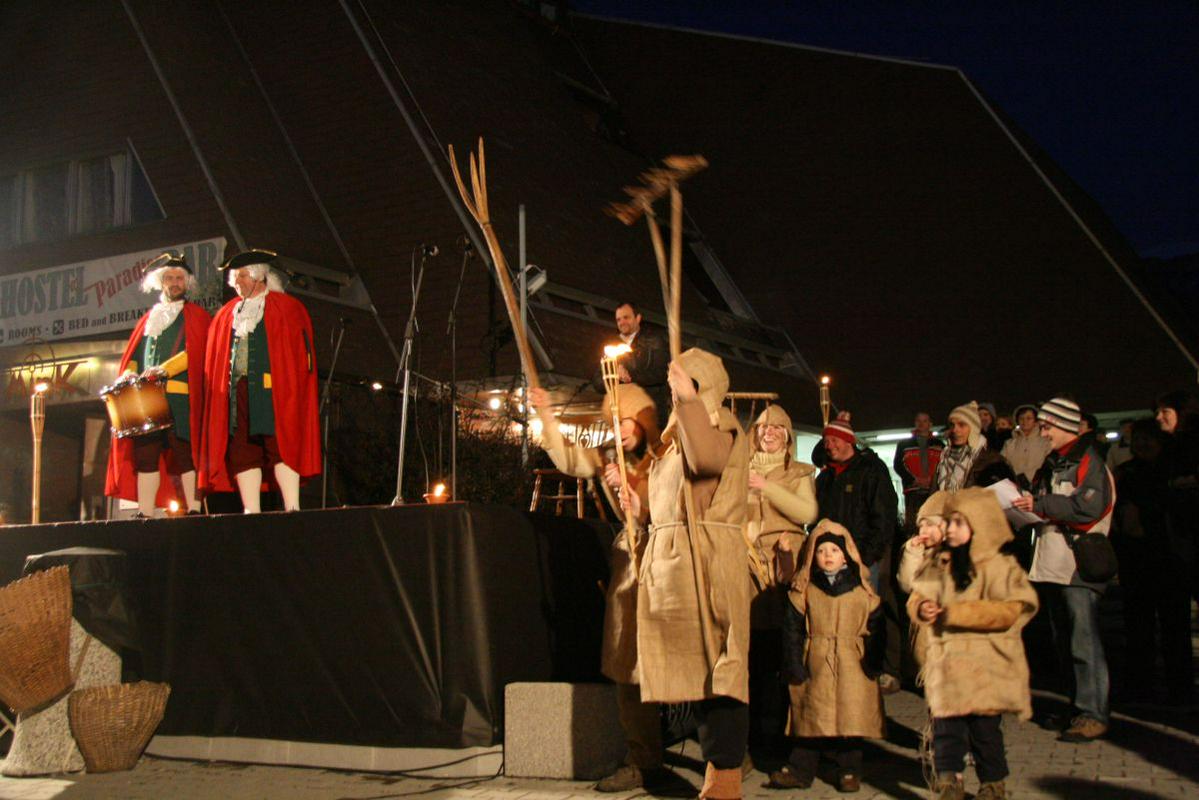These days, Tolmin is a quiet, almost sleepy town in the foothills of Slovenia’s Julian Alps. In the early 18th century, however, it was the site of a peasant revolt that left an impact far beyond the town itself.
The rebellion began when the local authorities introduced new taxes on meat and wine. The local farmers already had trouble making their ends meet since the area had been ravaged by livestock diseases and flooding. The new taxes brought the situation to a boiling point.
In 1713, a tax inspector named Jakob Bandeu from the town of Gorizia (then a part of Austria) jailed several Tolmin peasants who owed back taxes and confiscated their stores of salt – a vital resource in the era before refrigeration. When they heard what had happened, several hundred people from Tolmin headed towards Gorizia to free the prisoners. The authorities set up a roadblock; some of the peasants were arrested, while others dispersed before they reached the town.
The next day, however, a group made it to Gorizia, where they demanded the release of the prisoners as well as tax relief. They even attacked the tax collector’s home. Hoping to preserve peace, the local authorities decided to release their prisoners.
But it was too late. Following the example of the Tolmin protestors, other revolts followed throughout the Gorizia region and even spread into some towns in the Slovenian heartland of Carniola. The peasants, who had the support of some priests, demanded the abolition of taxes paid to the local nobility. One group attacked the Duino Castle overlooking the Adriatic Sea. Even miners at the mercury mine in Idrija briefly joined the revolt. Tollhouses throughout the region found themselves under siege.
Finally, the authorities had enough. The Emperor sent troops to quash the revolts. The rebellious peasants were outnumbered and quickly defeated. Eleven of them were executed, then drawn and quartered; 150 were imprisoned and had their property confiscated. Priests sympathetic to the rebel cause were exiled.
The Tolmin Revolt was the last peasant uprising in the Slovenian Lands. In the years that followed, however, the authorities in Vienna, led by the Empress Maria Theresa, passed many of the reforms that had been demanded by the defeated peasants. The tax rates become less onerous and life for ordinary people slowly improved. Even though their revolt ended in failure, many of their ideals would ultimately emerge victorious.
Jaka Bartolj


































































